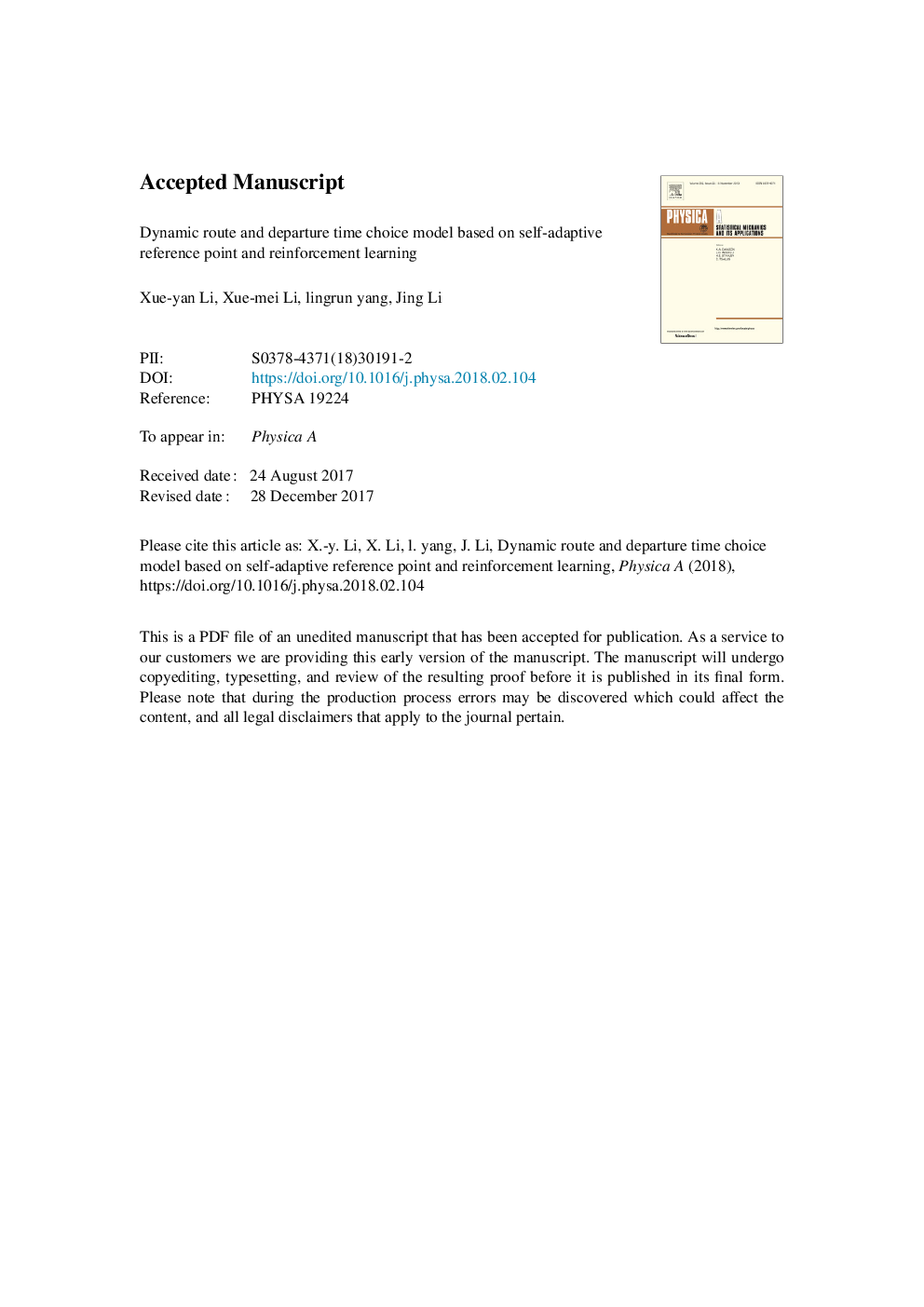| Article ID | Journal | Published Year | Pages | File Type |
|---|---|---|---|---|
| 7375480 | Physica A: Statistical Mechanics and its Applications | 2018 | 23 Pages |
Abstract
Most of the previous studies on dynamic traffic assignment are based on traditional analytical framework, for instance, the idea of Dynamic User Equilibrium has been widely used in depicting both the route choice and the departure time choice. However, some recent studies have demonstrated that the dynamic traffic flow assignment largely depends on travelers' rationality degree, travelers' heterogeneity and what the traffic information the travelers have. In this paper, we develop a new self-adaptive multi agent model to depict travelers' behavior in Dynamic Traffic Assignment. We use Cumulative Prospect Theory with heterogeneous reference points to illustrate travelers' bounded rationality. We use reinforcement-learning model to depict travelers' route and departure time choosing behavior under the condition of imperfect information. We design the evolution rule of travelers' expected arrival time and the algorithm of traffic flow assignment. Compared with the traditional model, the self-adaptive multi agent model we proposed in this paper can effectively help travelers avoid the rush hour. Finally, we report and analyze the effect of travelers' group behavior on the transportation system, and give some insights into the relation between travelers' group behavior and the performance of transportation system.
Keywords
Related Topics
Physical Sciences and Engineering
Mathematics
Mathematical Physics
Authors
Xue-yan Li, Xue-mei Li, Lingrun Yang, Jing Li,
